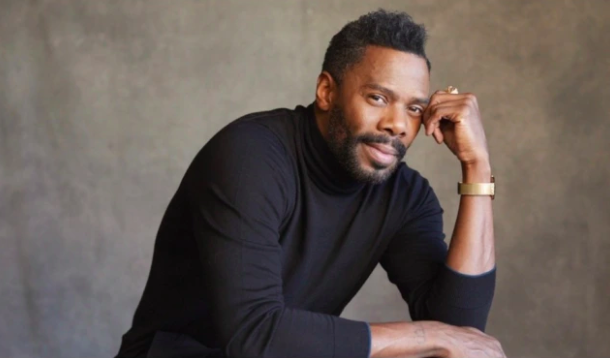Colman Domingo will be (sing) singing in U.S. theaters next year.
A24 has acquired U.S. theatrical rights to Sing Sing, the Greg Kwedar-directed drama that stars the 53-year-old Belizean-Guatemalan American actor and social justice activist.
 The film premiered at the Toronto International Film Festival (TIFF) to rapturous reviews and A24 is plotting a 2024 theatrical release.
The film premiered at the Toronto International Film Festival (TIFF) to rapturous reviews and A24 is plotting a 2024 theatrical release.
Financed and produced by Black Bear, the Marfa Peach Company and Edith Productions, Sing Sing revolves around a theater group that escapes the reality of incarceration through the creativity of staging a play, with a cast that includes actors who have been incarcerated. Clint Bentley & Kwedar adapted the script from Brent Buell’s play, Breakin’ The Mummy’s Code and John H. Richardson’s The Sing Sing Follies.
Bentley and Kwedar produced with Monique Walton. Colman Domingo, Raul Domingo, Michael Heimler, Teddy Schwarzman, Larry Kalas, Larry Kelly, Nancy Schafer, Clarence “Divine Eye” Maclin, and John “Divine G” Whitfield are the executive producers.
CAA Media Finance brokered the domestic deal, and Black Bear is selling international territories.
Domingo turned in two strong performances in festival films, with the other being his turn as Bayard Rustin in Netflix’s Rustin. That is the George C. Wolfe-directed drama about how Rustin was the quiet organizational catalyst of the Civil Rights march on Washington, where Dr. Martin Luther King Jr. gave his iconic speech.
Sing Sing has quite a backstory.,
In keeping with the filmmakers’ deep respect for their collaborators, a concept that Kwedar and Bentley had initially developed for their film Jockey was employed on Sing Sing. The project is a SAG-AFTRA guild signatory but not members of other guilds, and the filmmakers wanted to ensure that everyone involved in the film felt like an equal, and shared in the upside of the film’s success. The filmmakers deployed a community-based model, where every member of the film was treated equally and became a profit participant.
“Everybody got paid the same rate, be it cast or crew, based on the SAG scale rate. And then, everyone shared in a piece of the equity. I’d never heard of an equity model that invited everyone to fully participate,” says producer Monique Walton. That approach appealed to cast members like Domingo, too. “There’s no money on the table for you,” he says. “But there’s a sense of purpose, and that’s the sort of art you make time for. There’s an understanding that, at the heart of it, everyone involved is in it for the right reasons.”
Each member of the cast and crew received a pro rata portion of the film’s equity pool, based on the amount of days worked and the period of creative services provided. Each member of the cast and crew, from Domingo to the PAs, were paid the same daily and weekly rate. Every single qualified member of the production meaningfully participates in the financial success. And because of that arrangement, “this radical transparency birthed a radical trust,” says Kwedar. “We realized that we rise and fall together, we all shared the same goals, and there was no hierarchy. It was a culture where the best ideas could come forward from anyone on the team and be heard.”
